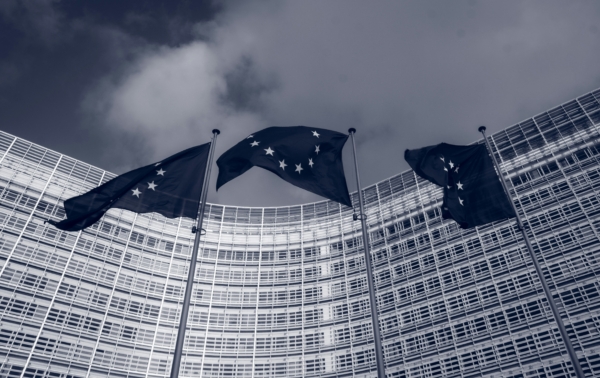Evidence is mounting every day that Russia has influenced the Presidential elections in the United States. There are at least indications that there has been similar activity in recent elections in Europe. The investigative journalists at the OCCRP working with Transparency International have uncovered a €2.5 billion fund in Azerbaijan used to bribe politicians all over Europe to buy favours. Finally, there have been a number of cases of fraud and misuse of funds by European political parties in recent years with several investigations still ongoing.
Against this background, the European Commission has introduced a number of changes to the statute of European Political Parties and Foundations a mere nine months after the statute entered into force. During a recent public hearing, the European Parliament recognised the many shortcomings of the statute, chief among which the functioning and transparency of the financing scheme.
To understand how we got here in the first place, it’s important to note that the statute is a posterchild example of legislative expediency. In early 2014, the Council submitted its position on a Friday late afternoon, with the text scheduled for adoption on the following Tuesday. Who says Brussels can’t take quick decisions? Such speed can only be achieved if nobody bothers with the usual rules of the legislative procedure. And then you wrap everything up during the last plenary vote before the 2014 European elections, letting the next legislature deal with the fallout.
Given the shortcomings of the current statute, one might think decision-makers in Brussels had learned from their predecessors. Yet once more we’re confounded in our expectations as the new reform package, submitted in mid-September, will be rushed through the legislative mill and preserves major loopholes in the current rules. We have identified the following weak spots:
- No further progress on transparency and fraud prevention
The proposal ignores the Commissions concerns regarding the viability and transparency of the co-financing scheme. To be eligible for funding, European political parties and foundations are currently required to provide 15% of their total budget from donations . This has led some to dubious practices such as using hard-to-value in-kind donations and circular financial flows, where external companies receive contracts compensating them for their initial donations to increase the funding parties receive from the EU. By going for the quick fix of simply lowering the co-financing threshold to 10% for parties and 5% for foundations, decision-makers think they can ignore any transparency issues.
There is however a lack of transparency, both on where the donations are coming from and what the money of parties is being spend on, particularly during campaigns.
Donors to political parties are currently revealed up to two years after they have made their donation. Such delays in fast-moving political landscape are completely unacceptable. As of November 2017 we are still awaiting the 2016 financial reports that contain donations starting as of January 2016.
Particularly during election campaigns, it is crucial to have a publication as close to real-time as possible – a standard that applies in many countries around the world. Time should be measured in hours rather than years in this context. This is particularly crucial in a time when campaigning is moving more and more online and onto social media.
The same delays apply to reports on what money is being spent on. Particularly for the periods of election campaigns it is crucial to have an overview before citizens cast their ballot.
Making all this information public is crucial given the current lack of resources the institutions are dedicating to the management and oversight of the European Political Parties. One official is in charge of registration and oversight of parties and management of an annual budget of well over €30 million. Given how individual MEP’s and national parties have fiddled with these funds in the past, the Authority for European Political parties and foundations should have the means available to properly investigate and certify financial links to national parties and co-organising activities.
- The selection of MEPs in charge of the file
At least one of the shadow rapporteurs has first-hand experience on what this reform should have been all about. Appointing Morten Messerschmidt, from the ECR Group, definitely sends an interesting signal. His now defunct European political party (MELD) and its associated foundation (FELD) have both been found guilty of misusing EU funds on several accounts. Among others, Messerschmidt rented a nice sailing boat for a political campaign with no links to the EU or his activities as an MEP. The Parliament is now trying to recover the €400,000 of misspend EU funds.
- Redistributing funds to the two largest political parties
The proposal of the EPP and S&D rapporteurs will re-allocate the funding for European political parties. They plan to increase the funding for the two parties they belong to while reducing the amount for everybody else. In some instances, this means a reduction of 27%. Having a minimum of the funding (15%) allocated in equal shares to all registered political parties and foundations to ensure a basic functioning seems a good principle.
Reducing the funding for parties that are staunchly anti-democratic can and should be achieved differently, be it by changing the minimum requirements to register a party in the first place or more importantly by seriously assessing the compliance of parties with the fundamental values of the EU. Given the rise of Euroscepticism and populism across Europe, just changing the funding allocation is not a solution to this problem beyond the 2019 European elections.
The ongoing reform of the party statute is an opportunity not to be missed. In particular, donations should be published in real-time, which is a common practice in many countries. Having a distinct real-time public disclosure requirement for donations, loans, in-kind contributions and sponsorships is the best way of making sure that the European elections in June 2019 are as democratic, clean and fair as possible.







